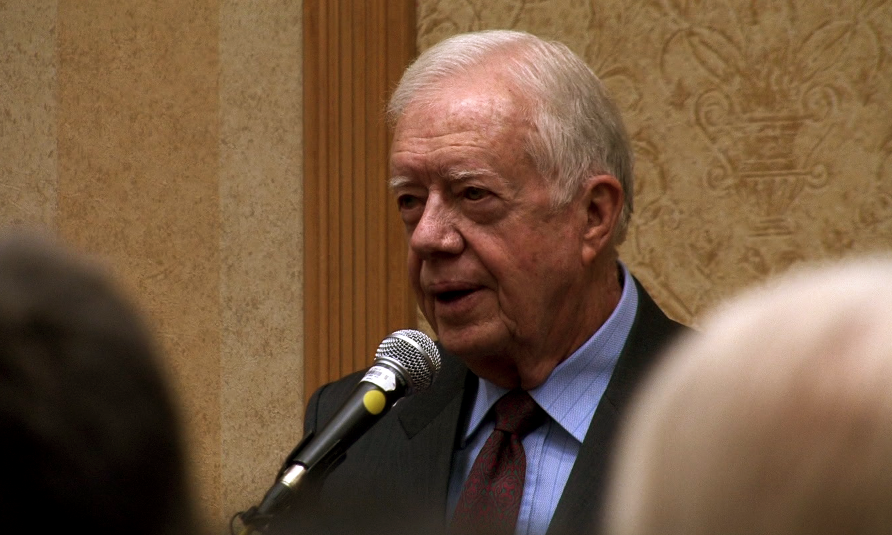Kathmandu: Jimmy Carter, the 39th President of the United States and a global humanitarian, passed away at 100 in his hometown of Plains, Georgia, after entering hospice care in early 2023. Carter, a peanut farmer turned politician, rose to the presidency during a turbulent time following the Watergate scandal and the Vietnam War. Although his single term was marked by challenges like inflation, the Iran hostage crisis, and economic struggles, Carter’s legacy flourished post-presidency through his work with The Carter Center.
After his defeat in 1980, Carter dedicated himself to promoting democracy, human rights, and global health. He mediated international conflicts, oversaw fair elections worldwide, and led efforts to eradicate the Guinea worm disease. His lifelong commitment to service earned him the Nobel Peace Prize in 2002.
Known for his humility, faith, and relentless drive to improve the world, Carter’s presidency saw historic achievements, including the Camp David Accords between Egypt and Israel, deregulation reforms, and environmental protections. However, it was his post-presidential contributions, including building homes with Habitat for Humanity and championing peace and public health, that solidified his place as one of the most impactful former presidents.
President Joe Biden, among others, praised Carter as a “man of principle, faith, and humility,” declaring January 9 a National Day of Mourning. Carter’s life, spanning from a small-town upbringing to the global stage, remains an extraordinary example of purpose and resilience.
Source: AP
